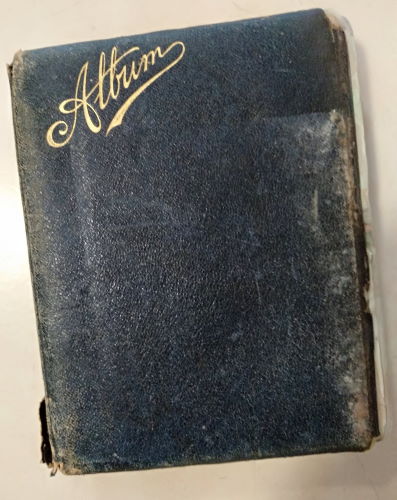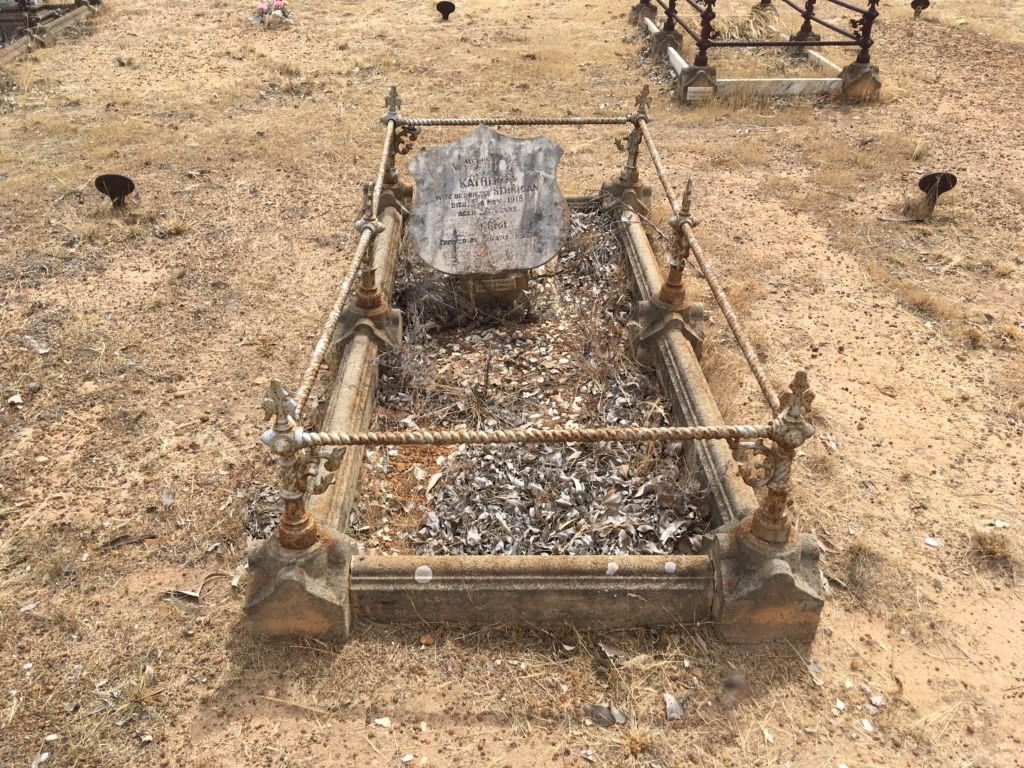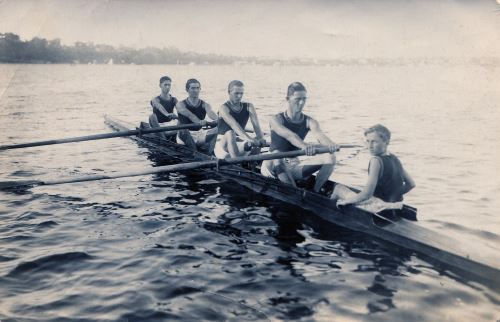Menu
- Details
- Category: Julie Martin
- Hits: 3986

 Redevelopment Authority. The group has worked hard to build its membership and develop wood and metalwork skills as well as giving a hand to the local community.
Redevelopment Authority. The group has worked hard to build its membership and develop wood and metalwork skills as well as giving a hand to the local community.
Unfortunately, the inevitable day arrived when the group was advised that they needed to move on and so began the task of sorting the contents of the ‘shed’ which had been accumulated over the years. FHWA member Lynne Roberts was one of those who volunteered to help.
In amongst an odd assortment of books stacked in a corner, she found a small, somewhat battered volume with a faded blue cover. On the flyleaf, handwritten in ink was the name Violet Ferguson and the date April 8th, 1893. The pages that followed were filled with handwritten verses, ditties and messages from a variety of young people that Violet encountered in the years 1893-1901 as she travelled the world. Many of these entries were accompanied by beautiful sketches.
Who was Violet and what was her autograph book doing in the Armadale Men’s Shed one hundred and twenty years on?
- Details
- Category: Julie Martin
- Hits: 7304
In a little-used portion of the Wagin Cemetery, surrounded by weeds struggling to survive in the dry brown soil, is a grave, bordered by a rusted iron railing atop concrete kerbing. All that can be read on the memorial plaque in the centre of this lonely rectangle are the words, ‘Kathleen’ and ‘November 1918’.
The woman who lies buried in this grave is Catherine Grace Hinnigan and hers is but one of the many stories linked to the signing of the Armistice, 100 years ago.

Roman Catholic Section - Lot 56. Wagin Cemetery
Read more: “It was a dreadful thing”: a story around Armistice Day, 1918
- Details
- Category: Julie Martin
- Hits: 5228

After twelve years on the floor of my wardrobe, collecting fluff and dust and often buried beneath an assortment of shoes, it recently stood on our dining table, all 16kgs of it, giving off an air of shabby majesty. The black metal glistened in places but the chrome plating was dull and sported patches of rust. In the half-light of evening, it threw a menacing shadow on the wall.
My mother, the lady who owned and treasured it has gone and now it too has gone, shipped to my daughter’s Federation style home in Melbourne, where it will blend in seamlessly with the high ceilings and ornate cornices and be lovingly displayed and admired. It leaves behind though, hazy memories which have drifted to the surface – sights and sounds which were once so familiar and humdrum that they left only a shadowy imprint on my consciousness.
- Details
- Category: Julie Martin
- Hits: 5212

We called it ‘the wireless’ at our place.
I didn’t consciously gravitate towards it, my mother made the introduction. I now realise that for her, it was a companion, a lifeline, a way of connecting to the world that lay outside the confines of our home.
Silence, disengagement is almost impossible today and yet when I think back to my mother’s early married life – silence and disengagement was her everyday reality.
When my father left for work each day and in later years when we children were off at school, she was home alone. Unable as she was then to drive, the car in the garage was useless. We had no telephone, TV hadn’t yet made an appearance, she had no family close by, there were no free community libraries, limited public transport. Her daily solitary task was to ‘keep house’. The only people she saw were the nearby shopkeepers or the baker and greengrocer who came by the house in their horse and cart. Occasionally, the doctor or chemist. She was, like many women of that time, living in silence, isolated and no doubt, lonely.
- Details
- Category: Julie Martin
- Hits: 6258

‘On Saturday afternoon the Swan River presented a gay appearance when the secondary school annual four-oared championship for the Headmaster's Cup was decided in beautiful weather. Crowds lined the terraces of King's Park and the SS Perth and various motor launches chartered for the occasion carried the youthful supporters from the different school, each crying themselves hoarse in barracking for their respective crews. A keen spirit of rivalry existed, and the event which carries with it the title "Head of the River" was won somewhat easily by the Scotch College The last occasion that Scotch was successful was in 1913, so it cannot be said that they have won out of their turn. As the colours of the school fluttered to the masthead of the winning post loud cheers rent the air for several minutes.’ (Western Mail 1920 May 6, p33)

